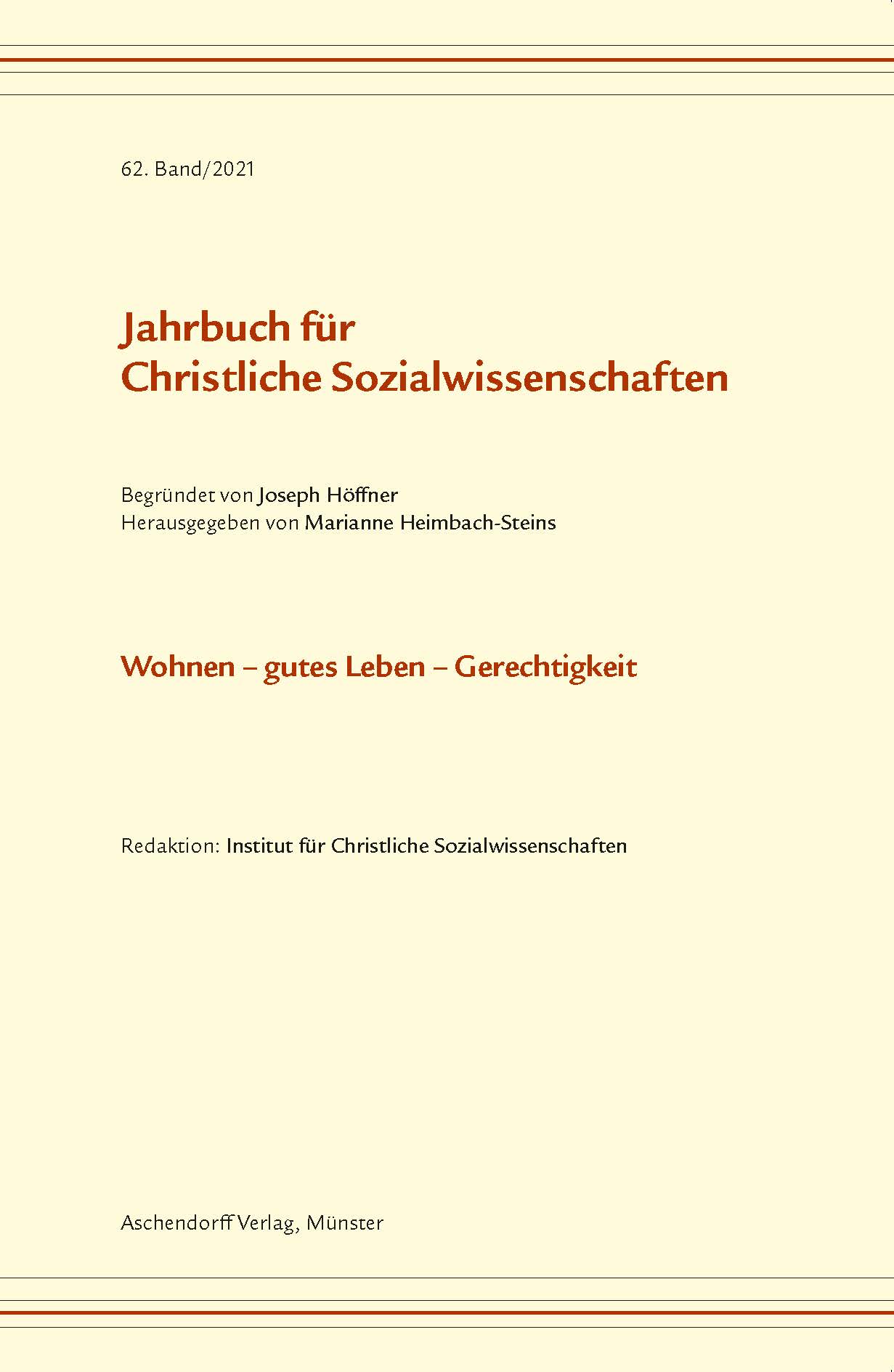Ethische Ansprüche an das eigene wirtschaftliche Handeln
Zur Notwendigkeit von Standards für die Vergabe von kirchlichen Erbbaugrundstücken und Wohnimmobilien
DOI:
https://doi.org/10.17879/jcsw-2021-3549Abstract
The churches own considerable properties and real estate. How the churches handle these land holdings is a question of their credibility. In the form of a discourse analysis, arguments are sorted and evaluated that bear on the allocation of inherited church building plots and in the handling of residential real estate. First, the framework of church law is delineated. Integrating economic-ethical and justice-theoretical arguments, a case is made for the introduction of a catalogue of criteria for the allocation of leasehold properties. In a second step, discussions on ethical-sustainable investments are included in order to broaden the perspective from one that asks, What do I do with the generated profits? whilst bringing into focus the perspective that asks, How do I generate profits? Based on the diagnosis that this level of ethical reflection has not yet been reached in dealing with church properties and residential real estate, the third section explains why it is important, especially in the housing issue, to look at reasons for and orientations of action beyond mercy and charity. According to the concluding thesis, only in this way is it possible for the churches to take on a transformative role in dealing with land and residential real estate and to assume responsibility for shaping society as a whole.

